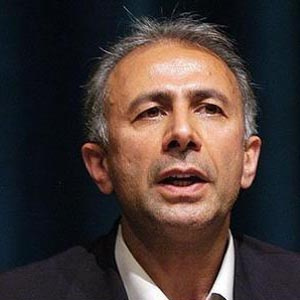Geneva Talks and the Future of Iran-US Relations

Director of UN International Atomic Energy Agency Mohammad ElBaradei has announced that Iran, Russia, United States and France will have a meeting on October 19th on sending Iran’s uranium overseas. However, Head of Iranian Atomic Energy Organization Ali Akbar Salehi says that these talks will be held between Tehran, Paris and Moscow. Dr. Ebrahim Mottaqi, Iran-US affairs analyst has commented on the issue:
Iran is following a step-by-step, low-profile strategy in restoring relations with the United States. That is, Iran prefers to keep the parley out of public access so that the negotiators could carry on their mission in peace.
Last week talks between Iran and U.S. representatives are a turning point in the history of Iran-US interaction on regional and international security policies. The significance of nuclear cooperation between Iran and IAEA and Russia and France’s participation is lies in the crucial role of these two countries in constructing nuclear power plants and uranium enrichment facilities.
To activate the Bushehr nuclear power plant, Iran has to import uranium in order to produce and stockpile nuclear fuel. The question is: if the uranium enrichment process inside Iran and its products could not supply Bushehr power plant’s fuel, then what kind of processed uranium is needed?
For the six world powers negotiating with Iran, ’transfer’ was a key notion. Countries like the United States and France insisted on transferring the process to another country in order to guarantee the non-deviation of fuel-producing activities. The trend initiated since first of October will continue in subsequent multilateral talks between Iran and Five plus One. For Iran keeping the centrifuges active is important but Western countries are concerned about what the centrifuges may produce. If the products could be monitored, the concerns would naturally subside. On the other hand, Iran-IAEA closer relations can improve Iran-US and Iran-France ties.
So far the Germans have demonstrated considerable flexibility. The French have talked about the opening for cooperation between Iran and Western countries. Iran’s backstage activities have also facilitated such partnerships.
The future of Iran-US relations
Despite the talks between Iran and US representatives on the sidelines of Geneva nuclear talks, and in spite of shared regional security threats and demands, I cannot say that Iran-US ties have a positive, transparent or cooperative perspective. The bilateral relations have a sinuous nature. That is, after the initiation of a cooperative trend, conflict-causing issues rise up again. I think ’asymmetrical détente’ is the best term we can use for the strategy adopted by Iran and the United States in their bilateral ties.

